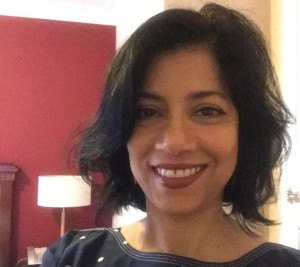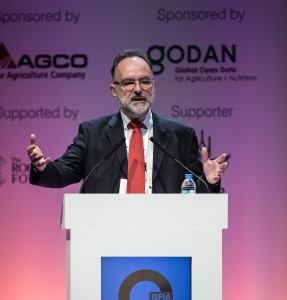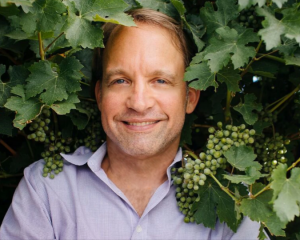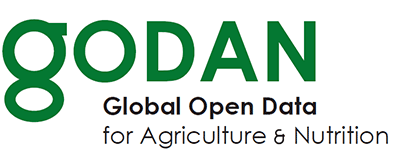Schedule (tentative)
December 3rd
December 4th
Half day program on Agri Semantic Web Applications and Tools
| 13.15-14.00 | Keynote by Medha Devare Spinning a Semantic Web for Agriculture |
| 14.00-15.00 | Selected talks (agro and nutrition) |
| 15.00-15.30 | Lightning poster presentations |
| 15.30-16.30 | Poster/demo session |
| 16.30-17.30 | Selected talks (agro and nutrition) |
| 17.30-18.30 | Panel discussion (Agrisemantics) A spotlight on Semantic Technologies for the reuse of Agri-Open Data |
|
19.00 – 22:00 Social dinner
|
|
Tutorial
Agricultural semantics: challenges, opportunities and the AgroFIMS fieldbook
Presented by: Marie-Angélique Laporte (Bioversity-France)
Unlike in the biomedical domain, the agricultural domain lags in adopting semantic technologies. However, the tremendous amount of data produced by a wide variety of actors, from farmers to researchers to private companies will benefit from the gains in interoperability and semantic richness conferred by these technologies. Indeed, unifying access to and linking this data with other domains can unlock powerful analytical capabilities and help to accelerate innovations to address global food security challenges. Several semantic standards and tools currently exist in the agricultural domain but the overlap in their content makes them difficult to reuse.
This tutorial is designed for anyone keen to learn about new use cases in the agrisemantics domain, to enhance skills that could be applied towards meaningful outcomes in leveraging the agricultural data ecosystem more effectively.
The tutorial will be organized in 4 parts. First, we will introduce the agricultural domain and its challenges in terms of the data landscape and the inherent sensitive nature of some data. A basic introduction to ontologies and semantic web technologies will be also part of this first session. Then, an in-depth overview of the existing semantic standards and tools used in the agri-community will be presented. Finally, we will take an example of how CGIAR is using semantic technologies to harmonize agronomic data from data collection to publishing. We will present the AgroFIMS fieldbook builder which relies on the Agronomy Ontology. Then, we will present how the data produced are semantically annotated from the start, and can therefore be easily published as Linked Open Data. We will also show how these data may be queried using SPARQL and presented in a user-friendly interface. This tutorial will also support an interactive discussion on how the SWAT4HCLS community can become engaged in the Agrisemantics domain.
Keynote
Spinning a Semantic Web for Agriculture
CGIAR is a global research partnership of 15 Centers primarily located in developing countries, working in the agricultural research for development sector. The CGIAR system is charged with tackling challenges at a variety of scales from the local to the global, which generally means being able to query and/or aggregate a variety of data types and streams. CGIAR aspires to FAIRness in its research outputs, and while progress is being made, the I of FAIR is the frog that doesn’t readily turn into a prince for the FAIR ringmistress in this tale. Yet, interoperability – particularly semantic interoperability— is critical to providing meaning and context to CGIAR’s varied information resources and enabling integration between linked or related data (e.g. an agronomic data set and related socioeconomic data). CGIAR’s approach to interoperability and data harmonization focuses on the use of standard vocabularies, and strong reliance on ontologies developed across CGIAR (efforts such as the Crop Ontology, the Agronomy Ontology – AgrO, the in-development socioeconomic ontology – SociO), and other entities (ENVO, UO, PO etc.) Spinning these into a semantic web for agriculture is a primary focus of the CGIAR’s Big Data Platform for Agriculture, and its Global Agricultural Research Data Innovation and Acceleration Network (GARDIAN). GARDIAN is intended to provide seamless, semantically-linked access to CGIAR publications and data, to demonstrate the full value of CGIAR research, enable new analyses and discovery, and enhance impact. In this talk, I will discuss CGIAR’s path to a FAIRy tale ending, complete with the sticky considerations entailed in web-spinning.
Medha Devare
 Medha Devare Ph.D. is Senior Research Fellow with the International Food Policy Research Institute (IFPRI). She led the CGIAR System‘s Open Access/Open Data Initiative, and currently leads efforts to organize data and enable semantic interoperability across CGIAR’s 15 agriculture for development-focused Centers through its Big Data Platform. Medha is a Cropping Systems Agronomist with significant experience leading projects addressing food security and sustainable resource management in South Asia. She also has expertise in data management and semantic web tools; while at Cornell University, she was instrumental in the development of VIVO, a semantic web application for representing academic scholarship.
Medha Devare Ph.D. is Senior Research Fellow with the International Food Policy Research Institute (IFPRI). She led the CGIAR System‘s Open Access/Open Data Initiative, and currently leads efforts to organize data and enable semantic interoperability across CGIAR’s 15 agriculture for development-focused Centers through its Big Data Platform. Medha is a Cropping Systems Agronomist with significant experience leading projects addressing food security and sustainable resource management in South Asia. She also has expertise in data management and semantic web tools; while at Cornell University, she was instrumental in the development of VIVO, a semantic web application for representing academic scholarship.
Panel
Semantic Technologies for the reuse of Agri-Open Data Watch the panel here
André Laperrière Watch André‘s introduction here
Executive Director, Global Open Data for Agriculture and Nutrition (GODAN)
Mr. André Laperrière joined the Global Open Data for Agriculture and Nutrition (GODAN) initiative as its first Executive Director, in September 2015. During his career, Mr. Laperrière has led/managed numerous projects on behalf of large Private Corporations and subsequently, within the United Nations and the World Bank. In this context he played a senior role in the design and the implementation of major reforms within a number of agencies such as the International Criminal Court (ICC), the World Health Organization (WHO) and UNICEF. He has extensive work experience in the Americas, Caribbean, Africa, Europe and the Middle East, in particular in developing countries and in conflict/post conflict environments.
Before joining GODAN, Mr. Laperrière was Deputy Chief Executive Officer at the Global Environment Facility (GEF) in Washington DC. Among other positions, he has also been the first Executive Director of the Trust Fund for Victims at the International Criminal Court (ICC), Director of the Administration and Finance Division in the World Health Organization (WHO), and Coordinator for reconstruction and rehabilitation activities under the responsibility of UNICEF in Iraq.
Prior to his career in the UN, Mr. Laperrière was Director in the International Services of Price Waterhouse. In this position, he led multiple large scale business evaluations, privatizations, mergers and structural reform projects in Europe, Africa, the Americas and Caribbean. Mr. Laperrière was born in Canada, where he completed postgraduate studies in Administration and in Industrial Relations. Mr. Laperrière is an expert in international development.
Christopher Brewster
Senior Scientist, Data Science Dept., TNO | Soesterberg, Netherlands
Professor, Application of Emerging Technologies,
Institute of Data Science, Maastrich University.
 Dr. Christopher Brewster is a Senior Scientist at TNO, and Professor in the Application of Emerging Technologies at the Institute of Data Science, Mastricht University. He specializes in semantics and interoperability architectures with an interest in emerging technologies such as blockchains. He was scientific co-ordinator for the Dutch public-private funded Techruption Blockchain project , and co-led the Blockchain in agrifood project funded by Dutch Ministry of Economic Affairs. His research focus is Semantic Technologies, Open and Linked Data, interoperability architectures and Data Governance, with a special interest in the roles of Blockchain technology in solving real world problems, the ethical implications of blockchain technology, and the interaction of semantics with smart contacts. He has focussed on the agrifood domain as an application domain focussing on the use of Semantic Technologies to the food supply chain and logistics. He has published over 60 papers in conferences and journals, and organised many workshops.
Dr. Christopher Brewster is a Senior Scientist at TNO, and Professor in the Application of Emerging Technologies at the Institute of Data Science, Mastricht University. He specializes in semantics and interoperability architectures with an interest in emerging technologies such as blockchains. He was scientific co-ordinator for the Dutch public-private funded Techruption Blockchain project , and co-led the Blockchain in agrifood project funded by Dutch Ministry of Economic Affairs. His research focus is Semantic Technologies, Open and Linked Data, interoperability architectures and Data Governance, with a special interest in the roles of Blockchain technology in solving real world problems, the ethical implications of blockchain technology, and the interaction of semantics with smart contacts. He has focussed on the agrifood domain as an application domain focussing on the use of Semantic Technologies to the food supply chain and logistics. He has published over 60 papers in conferences and journals, and organised many workshops.
Further details http://www.cbrewster.com
Thomas Baker
Plain Semantics
 Tom Baker has worked on Semantic Web standards and vocabularies since the late 1990s, when he helped organize the Dublin Core Metadata Initiative (DCMI), which he now co-directs. Tom co-chaired the W3C working group that published Simple Knowledge Organization System (SKOS) in 2009 and currently contributes to the community developing the Shape Expressions language (ShEx) for RDF validation. In the area of agriculture he has worked on projects about AGROVOC and the FAO Geopolitical Ontology and helped FAO, NAL, and CABI develop the Global Agricultural Concept Scheme (GACS). Arguing that communication is always imperfect and that precise semantics do not scale across multiple domains and languages, Tom advocates for simple vocabularies and ontologies as a basis for pragmatic interoperability..
Tom Baker has worked on Semantic Web standards and vocabularies since the late 1990s, when he helped organize the Dublin Core Metadata Initiative (DCMI), which he now co-directs. Tom co-chaired the W3C working group that published Simple Knowledge Organization System (SKOS) in 2009 and currently contributes to the community developing the Shape Expressions language (ShEx) for RDF validation. In the area of agriculture he has worked on projects about AGROVOC and the FAO Geopolitical Ontology and helped FAO, NAL, and CABI develop the Global Agricultural Concept Scheme (GACS). Arguing that communication is always imperfect and that precise semantics do not scale across multiple domains and languages, Tom advocates for simple vocabularies and ontologies as a basis for pragmatic interoperability..
Further details http://tombaker.org
Derek Scuffell
Science and Technology Fellow
Digital Innovation Labs
Syngenta
Derek Scuffell has  worked in Agricultural research in industry for the majority of his career. Recently he has been focusing on applying semantics and linked data to create enduring data assets for enterprises. Derek actively participates in a wide range of collaborations across industry, has contributed to an number of data initiatives, such as the Global Open Data for Agriculture and Nutrition (GODAN) network, the European bioinformatics Institute (EMBL-EBI) industry partnership. Derek represented industry interests on the design for Agrimetrics a UK Agritech centre, and now sits on the Agrimetrics Advisory Board and is also visiting Professor, at the University of Reading in the School of Agriculture Policy and Development.
worked in Agricultural research in industry for the majority of his career. Recently he has been focusing on applying semantics and linked data to create enduring data assets for enterprises. Derek actively participates in a wide range of collaborations across industry, has contributed to an number of data initiatives, such as the Global Open Data for Agriculture and Nutrition (GODAN) network, the European bioinformatics Institute (EMBL-EBI) industry partnership. Derek represented industry interests on the design for Agrimetrics a UK Agritech centre, and now sits on the Agrimetrics Advisory Board and is also visiting Professor, at the University of Reading in the School of Agriculture Policy and Development.
Further details https://www.linkedin.com/in/derekscuffell/
Matthew Lange
Food and Health Informatician
Food Science Department
University of California, Davis, USA
Dr. Matthew Lange is a Food and Health Informatician in the Food Science Department at UC Davis with over 20 years experience building data, information, and knowledge systems for academia, industry, and government operations. He is the Principal Investigator and Director of IC-FOODS, the International Center for Food Ontology, Operability, Data, and Semantics (www.ic-foods.org). IC-FOODS is dedicated to building global computable infrastructure for the Internet of Food and the Semantic Web of Food. Synergistic with IC-FOODS, Dr. Lange co-leads the GODAN Working Group for Alignment of Authoritative Vocabularies of Food, and is designing ontological infrastructure for a new FoodCentral Repository for USDA food composition databases. The Semantic Web of Food (SWoF) and Internet of Food (IoF) hold promise to fundamentally alter the way we produce, process, deliver and consume food: giving rise to ecosystems of next-generation knowledge tools that lower technical innovation barriers for creation of novel, traceable, ecologically-friendly foods, products, medicines, and lifestyle regimens: precisely personalized for health and delight, and aggregatable for population and market analyses. The IoF holds potential to provide infrastructure enabling companies to compete to deliver healthier, more sustainable, and more trustworthy foods.


